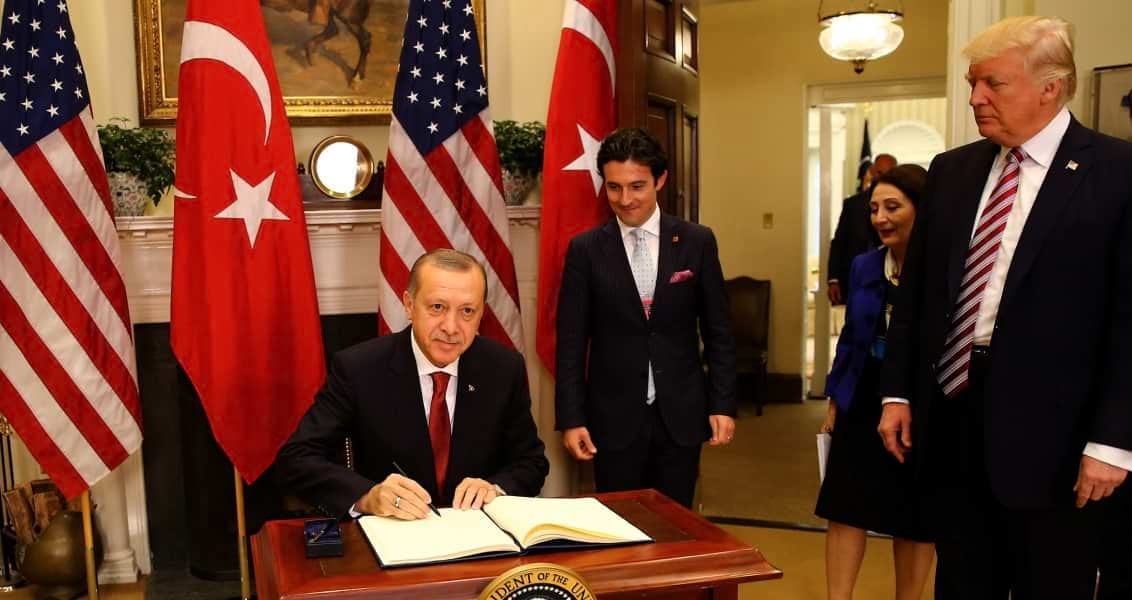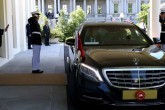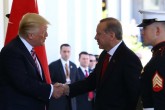A very important development occurred this week for the normalization process of Turkish-American relations. Recently, President Recep Tayyip Erdoğan had a face-to-face meeting with U.S. President Donald Trump in the White House. Since 2002, Erdoğan has visited the U.S. several times to meet with various presidents. We have to say that this visit by Erdoğan has been different in two respects. The first is that Erdoğan did not go to Washington from Istanbul over the Atlantic, instead he traveled from Beijing over the Pacific, whether this could be read as an interesting clue to Turkey’s foreign policy in the new period, only time will tell.
Second, this is Erdoğan’s first visit after Trump’s election as president and aims to normalize Turkish-American relations that have hit their worst slump in recent history. This visit, where I was also in Erdoğan’s delegation, had the purpose of turning a new page in bilateral relations.
Prior to the visit, many analysts claimed that a new phase in Turkish-American relations depended on Trump’s attitude toward Raqqa. The Barak Obama administration’s support for the People’s Protection Units (YPG), the PKK’s Syrian army, under the guise of fighting Daesh, created significant tension between the two countries. In fact, Trump’s approval of the Obama-period plan to give the Syrian Democratic Forces (SDF), which consist primarily of YPG members, heavy weaponry in the operations in Raqqa against Daesh put a damper on relations prior to the visit. The cloud of this decision was expected to overshadow the meeting, even inspiring a debate about whether or not it should be cancelled. However, the ones who were discussing this were not Trump, Erdoğan or even their supporters. The actors who did not want this relationship to be established actually attempted to manipulate it prior to the visit. The main justification for embarking on a normalization of Turkish-American relations, which entered a serious crisis during the Obama period, is not that the two countries should be partners in every issue, but that they be fully removed. The main matter is whether the “war of attrition” that was being conducted against Turkey and Turkey’s President Erdoğan will continue. In other words, it is time to leave the anti-Erdoğan discourse that has been rampant since May 2013 behind and to recognize Erdoğan as Turkey’s strong and legitimate leader.
President Trump’s foreign policy discourse is based on “close work with traditional allies” and criticizes the approach of “intervening in countries’ domestic issues” that occurred during the Obama period. In his phone call with Erdoğan after being elected president, Trump made it clear that he did not want to continue the Obama period’s war of attrition. In fact, his congratulatory call to Erdoğan following the April 16 referendum, which the American media did everything it could to delegitimize, was an indicator of this.
Despite the tension between the leaders over the YPG issue, a potentially strong channel was set up between the two in Tuesday’s meeting. Equally important, Trump clearly demonstrated that he would not be continuing the Obama period’s misguided policies or the war of attrition on Erdoğan.
Obviously, the anti-Trump media was extremely uncomfortable with this situation. By “anti-Trump media,” I am referencing an important group of the American media. This segment has an ongoing mission designed to persuade Trump to board the anti-Erdoğan movement. Trump’s warm reception and hospitality toward Erdoğan, and the message that he gave, showed just how resistant he is to these types of manipulative publications.
What can be said about the American media that chooses to ignore the new progressive phase of relations emerging from a state of crisis? Since in their publications prefer to write articles about “Erdoğan’s bodyguards,” there is only one response to their irresponsible reporting, actually, and that is: Deplorable!
[Daily Sabah, May 19, 2017]
In this article
- Foreign Policy
- Opinion
- 2002
- 2013
- 2017
- Anti-Erdoğanizm
- DAESH
- Daily Sabah
- Donald Trump
- Global Actors | Local Actors
- Kurdistan Workers' Party Terrorist Organization (PKK)
- Middle East
- Normalization
- People's Protection Units (YPG)
- PKK - YPG - SDF - PYD - YPJ - SDG - HBDH - HPG - KCK - PJAK - TAK - YBŞ
- Recep Tayyip Erdoğan
- Syria
- Syrian Civil War
- Syrian Conflict
- Syrian Crisis
- Terror
- The President of the Republic of Türkiye
- Turkish Foreign Policy
- Turkish President
- Turkish-American Relations
- Türkiye-US Relations
- Türkiye's Foreign Policy
- United States (US)
- US President



